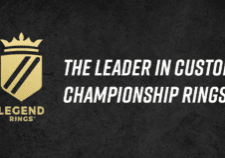
March Madness has provided an array of underdog stories. A number 16 team knocked off a number 1 team for the first time in history. All four of the top-seeded teams in the South region lost in the first week. And of course, a number 11 seed made it to the Final Four for just the 4th time in tournament history. Even though all of these stories are somewhat intertwined, something separates this last story from the others. This Loyola Chicago team was really good. With an efficient coaching strategy and what some called a “complete team”, it’s not that far-fetched to think this ‘Cinderella’ team could have won it all (they didn’t, they came up just short to a tough Michigan team in the Final Four). Here are three key factors that make the Loyola team so effective and efficient – coaches apply them as you will…
Purpose | Inspiration to Succeed
Take a look around this Loyola team and you will see so many inspiring storylines. First and foremost, Sister Jean Dolores Schmidt. The 98-year-old nun, chaplain and self-appointed coach and scout has captured the nation by storm. Seeing her sit court-side in her wheelchair, it’s hard not to route for the Ramblers. A month ago not many knew of Sister Jean; now people are purchasing t-shirts with her quotes on them and lining up for bobblehead figurines of the nun. She fits in so well with the underdog story. It’s easy to see how the Ramblers found a way to win for Sister Jean.
But the storylines go beyond Loyola’s lovable chaplain – the inspiration piles up. Loyola stars Ben Richardson and Clayton Custer have been playing together since grade school. Yes, you read that right. Two players competing in a Final Four, after playing together for so long.
There’s also the recent story about a fan that asked Custer to take a picture of her and the Loyola team; little did she know she was handing the camera to the Rambler’s biggest star. She asked Custer, “are you on the team?”. The path from obscurity to fandom is long, evidently.
Another incredible storyline is the last time the Ramblers won the tournament, in 1963. That team broke racial barriers by playing more than two black players at a time. During this time there was a “gentlemen’s agreement” where coaches wouldn’t have more than two black players on the court at a time. Loyola often played three or four. Members of that 1963 team had lunch with players on this year’s team, earlier in the season. As well, they sat court-side to watch the Cinderella story unfold this March. Again, hard to lose when you look over and see such inspiration.
The underdog story itself started to take shape and become the inspiration. Loyola hadn’t been to the big dance since 1985. Each epic last-second shot to win, each upset, each round they advanced – it all began to inspire more and more confidence. Suddenly, they’re making 50% of their 3-pointers, playing a stringent shut-down defense and winning 21 of their last 22 games.
Culture | Find a Way
While this one is hard to define, there’s no denying that this Loyola team possessed good culture. That culture is strung throughout the entire team, from the players to the coaches to the athletic director and leadership team. But the person who is most instrumental in the culture built at Loyola is coach Porter Moser.
Moser has been building this team’s culture since he took over as Loyola’s coach in 2011. That first year, the Ramblers went 7-23, a step backwards from the 16-15 season they had in Jim Whitesell’s final season coaching the team. Since then, Moser has been continually building the culture at Loyola. During this time the team moved from the Horizon League to the Missouri Valley Conference – which has allowed them to attract higher quality talent. But it’s not just talent alone that builds a winning team. There are far more talented teams than Loyola in the tournament – and many of them did not make it to the Final Four. That’s not to say that this Ramblers team wasn’t talented (the 32-5 record speaks for itself), but it’s their attitude and team culture that set them apart from the competition.
Selflessness, accountability, reliability, passion for the game and your team, and playing to your strengths are all part of Moser’s vision. These themes play out on a daily basis both on and off the court. Each micro-moment part of the collection that defines an individual’s and team’s culture.
Without these little moments on and off the court, the big picture development doesn’t happen. Every class and lecture attended leads to an amazing offensive spacing on the court, because everyone on the team understands the importance of accountability. Every criticism and learning moment from the passionate coach during practice leads to more desire to win as a team, because Moser’s passion is infectious. Every team bonding moment off-court throughout the season leads to a selfless play that sets up a buzzer beater, because teamwork is placed above ego at Loyola. The little moments on and off court add up and collectively make a big difference.
During their 2018 March Madness run they have had a different leading scorer in each of the four games they won. To put that into perspective, the other three Final Four teams have had either 3 (Michigan) or 2 (Kansas and Villanova) leading scorers in their four wins leading to the Final Four. There is clearly varying degrees of a hierarchy on these teams. Trying to decipher who the most important player is on Loyola is more difficult. It changes on the night; they’re a complete basketball team. This adaptability comes from the selfless and accountable qualities of their team culture.
Moser’s very first recruit in 2011, Christian Thomas, saw the forming of this culture even back then. This cultural shift helped to form the current culture that exists at Loyola today. During Thomas’ Senior year, Donte Ingram and Ben Richardson were Freshman. Instilling culture into a team takes time but the benefits are there in the long run.
Communication + Vulnerability | It Goes Beyond Basketball
Thomas recalls a time when he was struggling to adjust to being a student-athlete Moser offered to get him tutoring. Thomas learned how Moser’s coaching style differed from most, “From the way those conversations started out, it was very clear that he cared about us more than just basketball players. And of course you hear about a lot of coaches where they let their players pretty much do whatever they want, as long as they show up on game day and perform. But ultimately, that does a disservice to a lot of people, because that’s not how the real world works”.
This story illustrates three things about Moser’s coaching style. First, his willingness to have an open dialogue with his athletes. Past and current players often touch on Moser’s ability for conversation. Second, this story is telling of Moser’s ability to allow players to be vulnerable with him. Third, it shows that Moser sees the bigger picture. He understands that players have off-court issues that have a direct effect on their on-court performance. Instead of letting their academics slide, Moser holds them responsible – installing accountability.
These elements form bonds of trust and loyalty between player and the coach. Where some coaches just focus on the game, others focus on building relationships that extend beyond basketball.
San Antonio Spurs coach, Gregg Popovich (considered one the greatest coaches of all-time), is renowned for showcasing all three of the above elements in his coaching style. He’s known to frequently set up team dinners, discuss politics and current events during team meetings, and regularly walk around and converse with players during practice. This ability to have an open dialogue with players and get to know them outside of basketball allows him to form a connection and be honest, open and critical of them in-game. Good coaches have a unique ability for developing this trust.
As destiny had it San Antonio is where the Cinderella story eneded, Coach Moser’s Loyola Ramblers lost 69-57 to Michigan in the Final Four. That doesn’t take anything away from the greatest of the 2018 Loyola basketball team.







